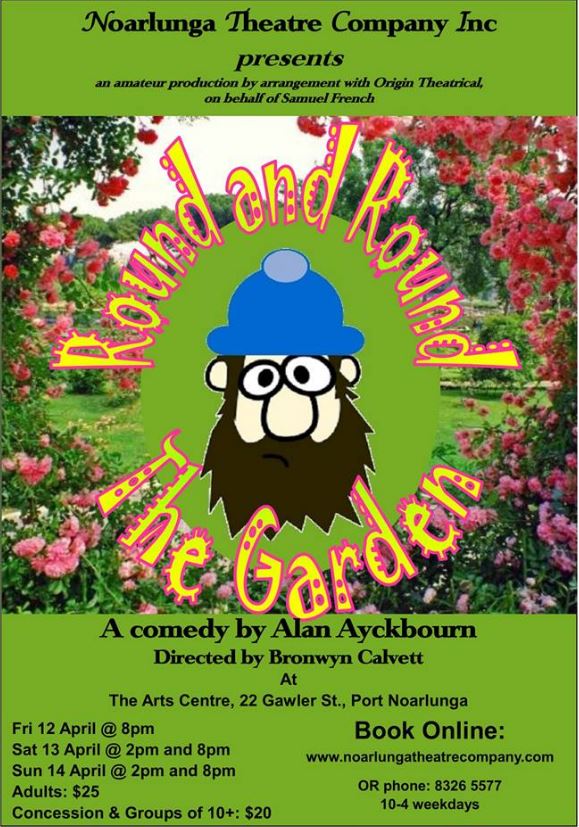Round and Round the Garden is one of the plays in Alan Ayckbourn’s famous trilogy The Norman Conquests and it follows the love conquests of Norman, a roly poly chap, (the job description for the actor aspiring for the role ) conquer anyone he can in his family. They are not at all very helpful.
Norman has arranged to take sister-in-lawAnnie, housebound by her irascible and ill mother, on a “naughty” weekend away, but others in the family who think they are there to help the situation do what they can to get in the way. Norman is extremely lucky that Annie has consented to go away with him. Let’s not forget that Norman is married to the feisty Ruth, yet he seems to have developed amnesia about this!
The garden setting designed by director Bronwyn Calvett, is open, sunny and very workable.
Round and Round the Garden is a farce, which of course must be played, as must all farces, at a cracking pace. This production tended to puddle along, unaccompanied by little opening- night audience mirth. The first scene is much too slow, which gives the audience time to “spot the plot” which, like many farces can sometimes be a little thin in places. Director Bronwyn Calvett could have jollied the pace, (and her actors) along and the audience with it
Performances are roughly even, with one or two actors providing a few well -earned laughs.
Protagonist lover- boy, Daniel Steele (Norman) striving desperately to whisk Annie (or maybe any other willing feminine family participant), away to Hastings provided some chuckles along the way. Celia Latty- Steele a career -obsessed Ruth, gave a vocally strong and eye catching role.
Eryn Kralj played Norman’s Annie quite well, and whilst she was Norman’s initial “weekend away” love interest, it is felt that Eryn needed more brightness and energy in her performance.
The experienced Chris Stansfield played Ruth and Annie’s brother Reg with great fun but at times was too hyperactive. Reg’s wife Sarah, was played by Linda Lawson with a nice touch of snobbishness.
Next- door -neighbour and vet Tom, who spent considerable time throughout looking for Cat (himself) and not having a clue about falling in love, was played rather as a caricature, by Nathanael Bayliss.
Seeing Ayckbourn’s other two plays in the trilogy may help to follow Norman’s downfall in his love games, but after all, any play should not merely be an episode in a series. It must stand alone.



